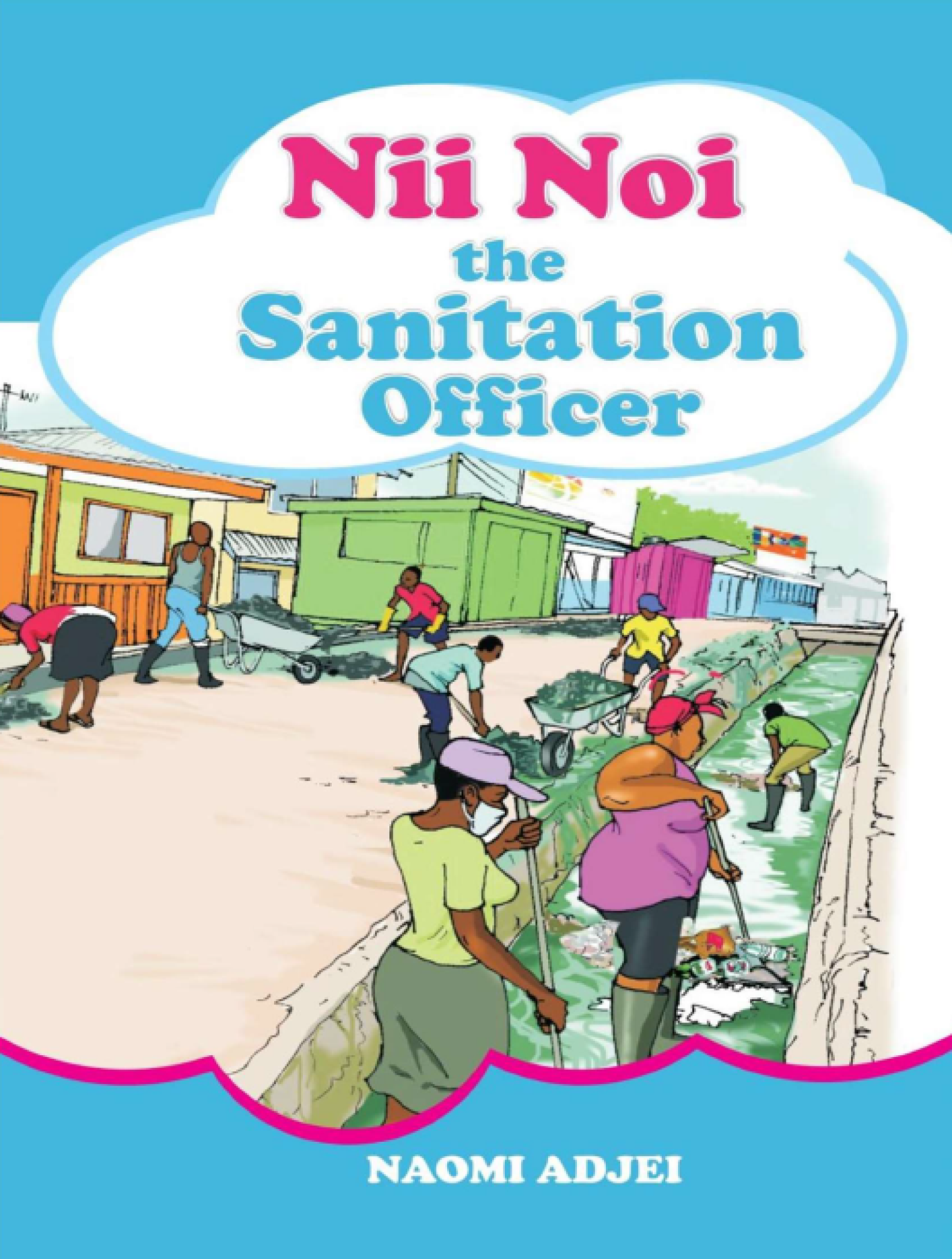SDG Book Club Interview with Naomi Adjei
Adjei authored "Nii Noi, the Sanitation Officer", which was selected for the SDG 6: Clean water and Sanitation English Reading list.
As part of our ongoing interview series, the SDG Book Club African Chapter caught up with Adjei to discuss her love of writing children's books, the SDGs and the current state of literature in a technology-centred world.
- Why do you write children's/young adults’ books? Tell us about the attraction of this genre.
The attraction for me, comes from the fact that children in their formative years are naturally in a place where they question, remember and use everything they hear or read. That puts me as a writer in a position where I absolutely can’t do shoddy work. I have to write well and tell the truth in the simplest and most creative ways, given that once it is done right, the story books will hit a cord and impact a child.
Beyond the opportunity to create something didactic, there is just something beautiful about tapping into your inner child, staying in that imaginary or real world, and appreciating it through the eyes of a 6-year-old or a 12-year-old. This keeps me going.
- Talk to us about your book in the context of SDG 6. How does it address the SDG’s concerns?
My book Nii Noi the Sanitation Officer is an SDG 6 awareness creation campaign for children. It brings to mind the issues of sanitation as being much bigger than just the litter here or there. It shows the life cycle of that litter and the consequent catastrophes that lie it in its wake. I believe this is the straw that needs to be drawn to get us all to pay attention, to get us to understand that not every natural occurrence is an act of God. Most of the time, these occurrences are acts of men.
Nii Noi, The Sanitation Officer is a crusade to get governments to take charge of their city planning and to stop open defecation and the resultant degradation of our environment.
- Tell us about the research process for your books in general, and for Nii Noi, The Sanitation Officer in particular?
It always starts with the subject. Once I have the subject I want the book to tackle, I read about it, talk to people who do and do not know about the subject to understand the ‘whys’ and the ‘whats’ that will need to be delved into in the book. For stories that require one or two corroborated ones, I ask around, or publish calls on social media in order to meet people who have such stories. This is what we did for ‘Talata, the Child Bride’. It was a story that required proof of occurrence so we went out as far as the Northern part of the country, to dig up stories and to listen.
Writing ‘Nii Noi, The Sanitation Officer’ was an easy one. Easy in the sense that the subject was so close to home that I didn’t need to do a lot of digging. Everywhere I pass, the issues are there: improper disposal of waste, lack of city planning that encourages open defecation; open drains becoming dumping sites for trash instead of channels for water to pass t through and the consequent perennial flooding. It really is all around us. And I just thought, ‘What do children think about this mess we adults have created?’ ‘If we, the adults, have given up on trying to keep our cities clean, perhaps our young ones can approach things differently?’ ‘ Is it too late or can things change for the better?’ These questions started the story of Nii Noi.

- How do you work with your illustrator? Walk us through the process.
First is to describe what my main character looks like. Once we have that down to a tee, we build the others together. The setting of the important chapters/scenes are discussed and locked down and for the rest, I trust him/her to bring it home.
- What are the advantages and disadvantages in modeling characters after people you know?
Advantage? It’s easy to do that, and you can be sure that if properly picked, your tone of voice will stay true to the target and the character you have in mind.
The Disadvantage? You may be so skewed in your thinking that your character may not be relatable if you unknowingly settle on an ‘outlier’ character. There are certain intricate characteristics of a Ghanaian mother, father or child that should help you write out a character without picking on one particular person you know. You run the risk of creating an unrelatable one if you pick a specific person.
- What in your opinion are the most important elements of good writing?
Language. Creative expression and clear plotting.
- In view of your book’s status as a UN SDG Book Club Africa book pick, what would you like to see in terms of impact and reach?
I would love for it to be read by every African child. In terms of impact, I can only hope that the children are encouraged or like Nii,that they find the courage to take and stand against improper disposal of waste and sanitation issues as it relates to their immediate environments.
- If you could meet any one your characters, from any one of your books, which would it be? What kind of conversation do you envisage having?
I would love to meet Talata! This was a girl who went through the unthinkable but still allowed herself to dream. She was a fighter all through to the end. I would say to her, ‘You go Girl! Your survival means you can help others like yourself.’
- Finally, what words of wisdom do you have for today’s children, growing up in our social media and screen dominated world?
There is a lot of information out there, mostly unsolicited, and so you need to teach yourself to consume what you want and not just what you are shown. Easiest way will be to listen to your parents. I wish I could say, wagging a finger in your face, ‘Stay away from social media: it’s bad for you!’ But I know that would be hard. And social media isn’t in fact all bad. Social media has both its negative and its positive sides. Just try to apportion your time wisely. Decide how much of your time you will give to this and to that. And decide how much of yourself you want to invest.
If you can, read more hard copy books, imagine the world you want, and create it. You really are in control and can do anything!
AUTHOR PROFILE
Naomi Adjei Tetteh is a certified project manager, an author and an integrated marketing communications professional from Ghana. Her seminal novel, Talata: The Child Bride is a carefully knit story of a budding young girl whose dream of becoming a doctor is nearly snuffed out by early marriage. It is a story of pain, hope and endurance.
Naomi has authored two additional books, Nii Noi the Sanitation Officer, [a UN SDG Book Club selection for SDG 6 – clean water and sanitation] and Cacophony. Naomi juggles her writing with work as a project manager in one of Ghana’s premier advertising agencies.
When Naomi is not writing, she is an advocate for the empowerment of the girl child and child literacy. Naomi is optimistic about life. Her principles are summed up in Abraham Lincoln’s maxim, “In the end, it’s not the years in your life that count. It’s the life in your years.”
Written by


